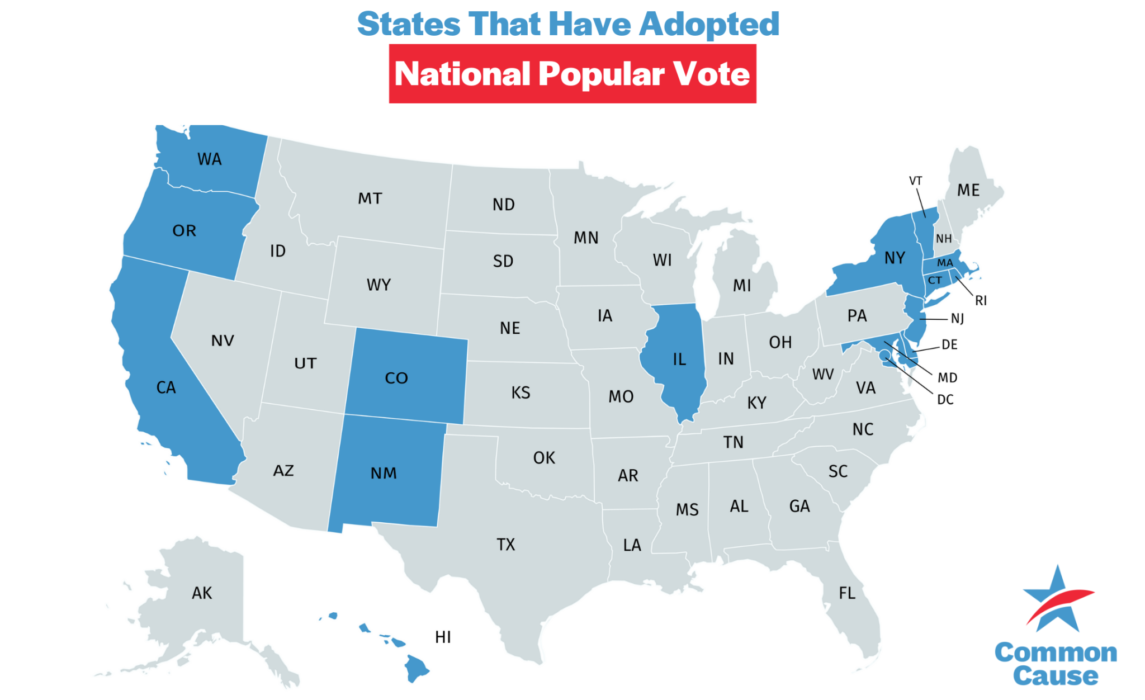In order for elections to truly be free and fair, every eligible citizen must have the ability to cast a vote, and every one of those votes must be accurately counted and weighted equally. However, under our current system, this is not the case in presidential elections.
Because of the Electoral College, the presidential candidate who wins the popular vote does not necessarily win the White House, as we saw in both 2000 and 2016. And in each presidential election, candidates are pressured to only compete in a handful of swing states, effectively ignoring voters in every other region of the country.
The National Popular Vote interstate compact is the solution.
This agreement binds states’ electoral votes to the popular vote winner and does away with the undemocratic Electoral College. This ensures that the winning candidate is the one with the most votes and that each American’s ballot counts equally. And it only goes into effect when enough states have signed on—currently, we’re about 70% of the way there.
On March 15, 2019, Governor Jared Polis signed onto National Popular Vote Interstate Compact, making Colorado the 13th jurisdiction to enact the compact into law.
However, opponents to NPV have forced the question to be asked on statewide ballots in the 2020 election—meaning Colorado voters will have the chance to settle the question once and for all in November of 2020.
As of now, 15 states and Washington, D.C. have joined the National Popular Vote compact: Connecticut, Rhode Island, Vermont, Hawaii, Massachusetts, Maryland, Washington, New Jersey, Illinois, New York, California, Colorado, New Mexico, Delaware and Oregon. This brings the compact to 196 of the 270 electoral votes needed to activate the pact — just 74 votes away.

